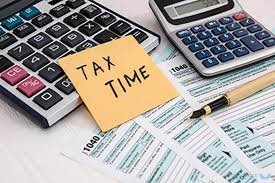Now Reading: Capital Gains Tax on Property Sales in the UAE: A Clear Overview
-
01
Capital Gains Tax on Property Sales in the UAE: A Clear Overview
Capital Gains Tax on Property Sales in the UAE: A Clear Overview

Table of Contents
Capital Gains Tax on Property Sales in the UAE: The United Arab Emirates (UAE) has long held a reputation as a tax-friendly jurisdiction, especially for real estate investors. A major component of this favorable reputation stems from its absence of capital gains tax—a critical advantage for individuals and entities selling property.
Here’s a comprehensive look at the current situation regarding capital gains tax on property sales in the UAE and related considerations for both residents and foreign investors.
1. Is There Capital Gains Tax in the UAE?

No, as of 2025, the UAE does not impose a capital gains tax on property sales for individuals, whether they are residents or non-residents. This means:
- If you sell a property and make a profit, you do not pay any tax on the gain.
- This applies to both residential and commercial real estate held for investment purposes.
This absence of capital gains tax has been a significant factor in attracting foreign direct investment into the UAE’s property market—particularly in cities like Dubai and Abu Dhabi.
2. What About the New Corporate Tax?

Although there’s no capital gains tax specifically, the introduction of UAE Corporate Tax (9%) in 2023—effective for financial years starting June 1, 2023—has introduced some indirect taxation on gains from property sales for certain entities.
Who is affected?
- Foreign companies (non-resident juridical persons) with real estate income from the UAE may now be subject to corporate tax on gains from property sales or income.
- UAE-based companies, including free zone entities, may be taxed on capital gains if the property is not used exclusively for qualifying activities (e.g., if it doesn’t meet “Free Zone Qualifying Income” criteria).
For example:
A foreign company that owns a commercial property in Dubai and sells it for a profit could now be liable for 9% corporate tax on the gain if it falls under the taxable structure.
Who is not affected?

- Individual investors (i.e., natural persons) who buy and sell real estate in their own capacity, and not as a business activity, remain exempt from capital gains tax.
- Gains from personal investments—like selling a residential property or an apartment bought as a long-term investment—are not subject to corporate tax.
3. Free Zone Considerations
Free zones in the UAE offer various tax exemptions, especially if companies meet the conditions for Qualifying Free Zone Persons.
Conditions include:
- Earning qualifying income (e.g., from trading within the free zone).
- Maintaining adequate economic substance in the free zone.
- Not electing to be taxed under the standard corporate tax regime.
If a free zone entity sells real estate outside the free zone, the income may be taxable unless the property is used exclusively for business purposes and not for generating passive investment returns.
4. VAT vs. Capital Gains Tax
It’s important not to confuse Value Added Tax (VAT) with capital gains tax:
- VAT (5%) applies to certain commercial property sales and leases.
- Residential property sales are generally zero-rated (first supply) or exempt (resale) from VAT.
- VAT is a transaction tax, not a tax on profit or gain.
So even though capital gains remain untaxed, a seller might still face VAT implications if selling a commercial property.
5. Tax Planning and Compliance
While the UAE remains a low-tax environment, recent changes underscore the importance of tax planning—especially for foreign investors, corporate entities, and developers.
Key points to consider:
- Structure your ownership (individual vs. corporate) with awareness of corporate tax laws.
- Ensure accurate bookkeeping and proper valuation documentation when disposing of assets.
- Monitor rental income and gains if operating through a business entity, as they may fall under corporate tax jurisdiction.
6. Global Tax Considerations for Foreign Investors
Even though the UAE does not levy capital gains tax, foreign investors may be subject to tax in their home country on gains realized in the UAE, depending on:
- Their tax residency.
- Whether their home country has a double tax treaty (DTT) with the UAE.
- Domestic tax rules on foreign-source income.
Example:
A UK resident who sells property in Dubai may not pay tax in the UAE but could be required to report the gain on their UK tax return, depending on their domicile and UK tax laws.
7. Future Outlook: Could Capital Gains Tax Be Introduced?
While the UAE currently has no plans to introduce a formal capital gains tax, its recent shift toward corporate taxation suggests a gradual move toward broader fiscal policies that align with international standards.
However, any such move would likely:
- Exclude individual investors to preserve the UAE’s appeal.
- Focus on corporate structures or high-value transactions.
- Be implemented in tandem with regulatory reforms to maintain transparency and competitiveness.
Conclusion
The UAE continues to offer a unique advantage for real estate investors with its zero capital gains tax policy for individuals. However, as the tax landscape evolves—especially with the implementation of corporate tax—investors must remain vigilant, particularly those operating through corporate or foreign structures.
To ensure compliance and optimal structuring:
- Consult a qualified tax advisor familiar with UAE and international tax law.
- Consider ownership models (individual vs. corporate) that best align with your investment strategy and tax exposure.
- Stay updated on FTA guidelines and any future tax policy developments.
WATCH MORE:https://www.youtube.com/watch?v=UhSD4c8XuRc
READ MORE: Navigating VAT in UAE Real Estate Transactions: A Comprehensive Guide



















